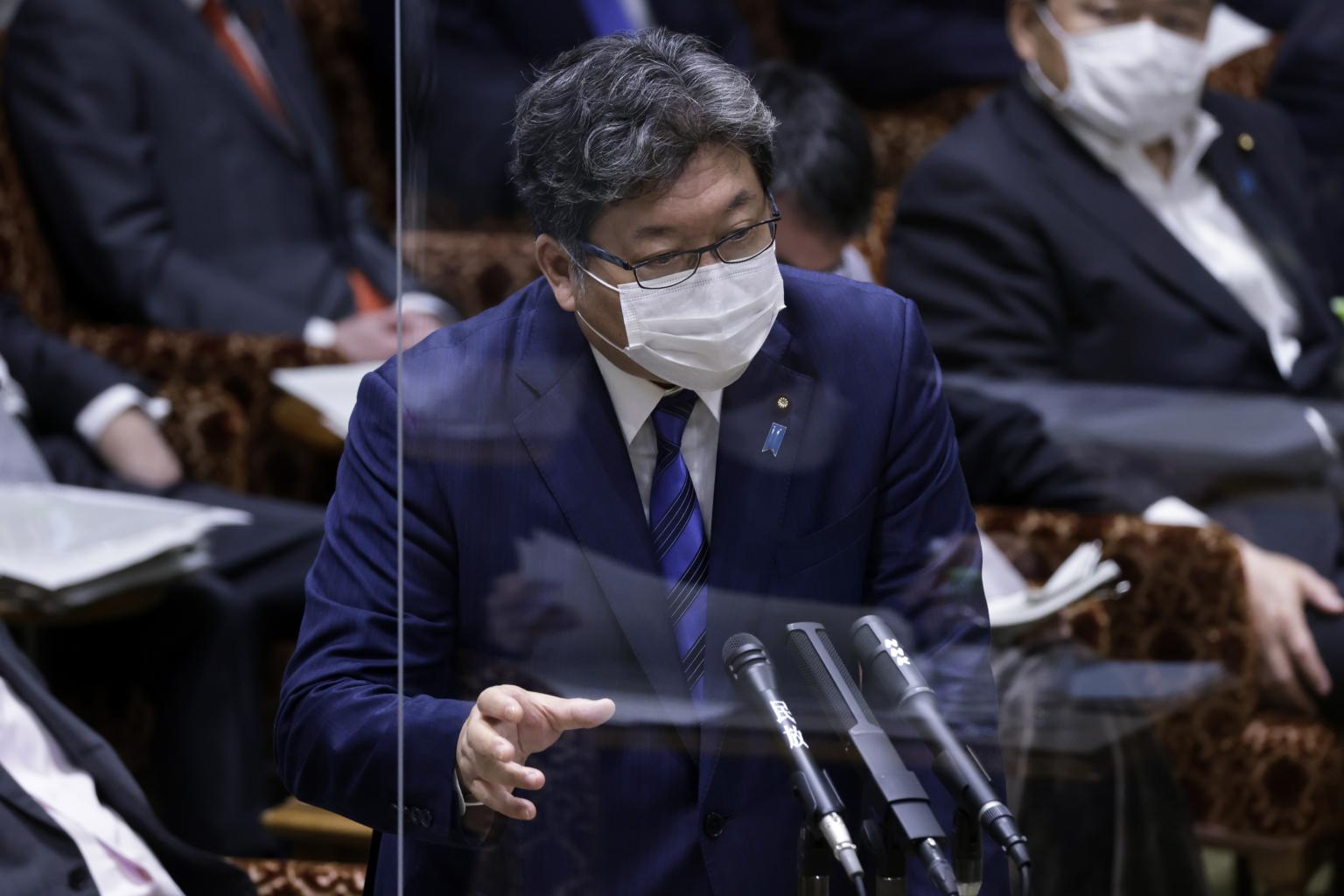Japan to probe China-funded Confucius Institutes amid propaganda, spy threat
Sign up now: Get insights on Asia's fast-moving developments

Education Minister Koichi Hagiuda announced the formal inquiry last month.
PHOTO: BLOOMBERG
TOKYO - Japan is set to open a probe into the Beijing-funded Confucius Institutes in the country, following warnings from its security partners that the purported cultural centres may be a conduit for Chinese propaganda and even espionage.
At the same time, it is toughening visa checks on Chinese students and tightening access to sensitive technology for all researchers, especially those involved in Beijing's Thousand Talents Plan to woo scholars.
"There is growing concern among regions that share common values such as freedom, democracy and the rule of law - including our ally the US as well as in European countries - that the Confucius Institutes should be abolished or be required to fully disclose their operations," Education Minister Koichi Hagiuda told the Diet last month in announcing the formal inquiry.
He was responding to ruling party lawmaker Haruko Arimura, who noted that the Confucius Institutes have been "recognised as a security threat in other countries" as she questioned how the CCP could be allowed to "systematically and strategically" establish the so-called cultural centres in Japan.
There are 14 Confucius Institutes set up in private universities across Japan, including the renowned Waseda University in Tokyo and Ritsumeikan University in Kyoto.
These were launched with next-to-no regulatory oversight. As they do not offer degrees, but rather courses on Chinese culture and language, they could be set up without any government approval.
In the formal inquiry, the Education Ministry will ask universities that host the Confucius Institutes for such details as funding and their sources, number of students, operational structure, and the extent of influence the Confucius Institutes wield over research in areas that China deems sensitive.
The conservative Sankei newspaper had called for a probe as early as in September last year, calling Confucius Institutes "communist-funded propaganda tools" with no room in a democratic country like Japan.
"The problem is that the Confucian institutes have become hotbeds for covert political machinations, funded to carry out Beijing's propaganda activities and providing cover for how it conducts influence operations," the Sankei editorial said.
It noted that instructors and teaching materials are all provided by China. "Apparently, the parties accepting this assistance have virtually no say in terms of human rights or influence in shaping the curriculum."
Japan has thus far been wary about acting against unconventional security threats to avoid damaging ties with China, a key business and trading partner.
But experts say that Tokyo is being prodded to do more, amid concerns that it may be the weak link in intelligence or high-tech research exchange in defence partnerships with democracies like the United States, the European Union and Australia.
Tokyo has, in recent months, been increasingly vocal about the China threat.
In April, it explicitly blamed the Chinese Communist Party (CCP) and the People's Liberation Army (PLA) for cyber attacks against 200 companies and research institutions, including the Japan Aerospace Exploration Agency (Jaxa).
It is also set to enshrine human rights into an update of its corporate governance code as soon as this month, after amping up its concerns over human rights in Xinjiang and Tibet, the clampdown on freedoms in Hong Kong, and rising tensions in Taiwan. This evoked criticism from China as "foreign interference".
Professor Heng Yee Kuang of the University of Tokyo's Graduate School of Public Policy told The Straits Times: "Japan's response is part of a growing backlash against Confucius Institutes as an example of Chinese manipulation and interference."
He added: "There are also real concerns over Chinese students in Japan who have been accused of cyber-espionage on behalf of the PLA, notably the recent cyber attacks on Jaxa."
Tokyo is also becoming more wary that sensitive intellectual property may be leaked to Beijing through personnel exchanges, with Japan a popular study destination for Chinese students.
The Yomiuri Shimbun cited informed sources in a report this week that tougher restrictions on technology access will be in place by next year to prevent the theft of sensitive technology that can be adapted for military purposes.
Dr Satoru Nagao, a non-resident fellow at the Washington-based Hudson Institute, told ST that the Confucius Institutes might present a "direct challenge to democracy", and that a gradual decoupling through curbs on personnel exchange is but a natural progression in the ongoing high-tech war.
"The more education exchanges are promoted with China, the more likely sensitive technologies can be revealed - whether knowingly or not - by the free world to the authoritarian regime," he added.
Prof Heng, however, said that Japan will likely take a "more restrained approach" - unlike the drastic measures to shut down Confucius Institutes or impose sanctions in the West - given its close business ties with Beijing.
"In an effort to preserve its relationship with China as much as it can, Japan will more likely tighten oversight and restrictions," he said.


